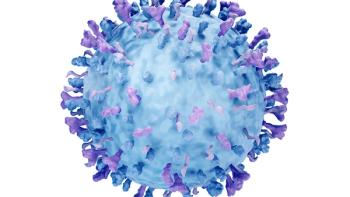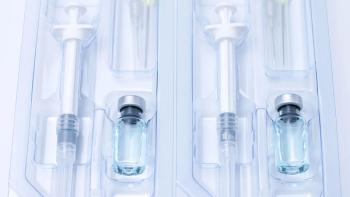
- BioPharm International-09-01-2009
- Volume 22
- Issue 9
Strategic Outsourcing of Media Design and Cell Culture Media Manufacturing
To select the right partner for media design and optimization services, several key factors must be considered.
In the biopharmaceutical industry, the drive to obtain higher therapeutic protein yields from a production process continues to be a key objective for controlling expenses and resource requirements. Although many factors contribute to protein yield, a key element is media optimization. A thorough understanding of a cell's nutritional requirements in a given process is essential to developing a high performance medium and feed strategy. Large biopharmaceutical companies often develop and optimize their own in-house media formulations, the manufacture of which are then outsourced to a media supplier. A media optimization project, however, can be time consuming and labor intensive if the proper tools and resources are not available. Outsourcing media optimization to an experienced supplier, skilled in biopharmaceutical applications, can significantly decrease development time and costs.
K. Fritchman (DON FARRALL/GETTY IMAGES)
COLLABORATE WITH THE OUTSOURCING PARTNER
To select the right partner for media design and optimization, several key factors must be considered, with the most important being the collaborative nature of the supplier. It is essential that the biopharmaceutical company and supplier work together in a partnership, with full transparency to all data. This helps ensure that proper decisions are made to increase the likelihood of success when the manufacturing process is implemented. Another key consideration is the supplier's understanding of biopharmaceutical production process requirements and the media optimization strategy it uses. A methodical optimization strategy, specifically created for production cell lines and including Design of Experiments (DOE) is essential for an optimized formulation. The designed experiments must be coupled with a strong analysis of spent media to ensure a thorough understanding of the entire process.
In addition, significant consideration should be given to the facilities that will be used for the optimization of the media formulation and subsequent media manufacturing. The facility should not only be able to supply the resources needed to perform the media optimization and to scale up production of the cell culture media, but also must satisfy rigorous quality and regulatory requirements that meet and even exceed the high standards required by the biopharmaceutical industry.
PRE-AUDIT THE FACILITY
When outsourcing cell culture media manufacturing, one must consider the facility itself as a critical component of the overall process. To ensure product consistency and performance, the facility must be pre-audited before manufacturing begins. There are several key attributes of a cGMP cell culture media manufacturing facility that one should assess. A high level of control of the raw materials, such as animal-origin information and strategic sourcing for reliable supply, along with a highly segregated process and personnel flow, are paramount. These should include a stringent animal-free raw material policy and complete segregation of all manufacturing areas, including personnel flow throughout the facility, as well as individual equipment suites with zoned HVAC systems to eliminate cross-contamination risk. The facility must include modular cleanroom systems with hardened PVC-coated walls and ceilings with cove transitions for ease of cleaning and full-viewing corridors that allow complete access to the facility without compromising room integrity. Automated clean-in-place (CIP) and steam-in-place (SIP) processes must be available as well as robust business continuity systems, including emergency utility back-up systems. The facility must have fully integrated cell culture media and supplement manufacturing capabilities with the ability to produce complete formulations for the full range of expression systems, including mammalian cell culture, microbial fermentation, and cell therapy.
The facility must be highly versatile with a fully scalable lot size capability including flexible packaging suites, that offer a wide range of filling capabilities and custom-packaging solutions. State-of-the-art milling technologies, such as pin mills, are preferable to ensure excellent particle size consistency, minimal heat generation, and easy cleaning using a CIP system with ultra pure water. Powder production must be highly versatile and fully scalable, offering a wide range of filling capabilities and custom-packaging solutions. In addition, the water used for liquids should be water for injection and USP-purified water to reduce bioburden and control endotoxin levels.
SUPPLY CHAIN MANAGEMENT
The foundation of a sound outsourcing strategy begins with due diligence in the selection of the raw materials and the packaging materials. Qualifying and maintaining the supply chain is best accomplished by designing a strategy for business continuity. This includes developing a supply chain that is aligned with one's business needs and that can adapt to an ever-evolving regulatory environment.
Among the other challenges of sourcing cGMP-manufactured raw materials and components, the industry is faced with qualifying and securing animal-free materials. In 1996, following the appearance of variant Creutzfeldt-Jakob disease (vCJD), the FDA Center for Biologics Evaluation and Research recommended that manufacturers take necessary steps to ensure they are not using bovine materials from cattle born, raised, or slaughtered in regions affected with bovine spongiform encephalopathy. The FDA has issued various guidance documents for sourcing and processing such materials. However, with many materials still sourced from animals, particularly in cases where there is only one known supplier of a given material, it is critical to scrutinize the raw materials and other components of a manufacturing process and products.
In addition to vCJD, animal-derived materials used in cell culture media may contain infectious agents (e.g., viruses, mycoplasma, prions). To most effectively minimize the risk of these agents, it is optimal to select a supplier that does not permit any animal-derived materials in its cell culture media manufacturing facility. In addition, the presence of an antimicrobic in a cell culture medium can mask the presence of viable microorganisms that can pose a significant risk. The risk of antimicrobics in a cell culture medium can be reduced by sourcing from a supplier that does not use any antimicrobics in the facility.
Table 1. Points to consider when selecting a media supplier for cell culture media design and manufacturing
The supplier's process must ensure there are no places where traceability could break down, gaps in batch history could exist, or extraneous material or contaminants of any kind could enter the process between raw material receipt and delivery of the media product to the end-user. The supplier must be regulated under current GMPs and confirmed by the FDA or a similar regulator outside the US, or certified to meet applicable ISO standards.
SUMMARY
When outsourcing cell culture media design and manufacturing, biopharmaceutical companies need to ensure highest safety levels. To do so, one should seek a media supplier that can provide flexible cGMP manufacturing capabilities in a dedicated facility, optimization services with custom solutions, supply chain management with stringent qualification, control and traceability of raw materials and suppliers, and strong management of risks and regulatory exposure. The resulting benefits are listed in Table 1.
K. Fritchman, J. Kuchibhatla, and Yann Pouliquen are bioprocess applications and scientific affairs managers, J. Brooks is an R&D manager and S. Holdread is a project scientist, research and development, A. Imam is a senior manager, quality systems, C. Velnoskey is a bionutrients market development and marketing manager, and V. Weinknecht is an industrial regulatory affairs manager, quality management and regulatory compliance, all at BD Biosciences–Advanced Bioprocessing, Sparks, MD, 760.788.4577,
Articles in this issue
over 16 years ago
BioPharm International, September 2009 Issue (PDF)over 16 years ago
A True Assessment of Riskover 16 years ago
Patenting Biotechnology Inventions Will Become More Challengingover 16 years ago
The Proper Use of 47-mm Flat Disc Filters in Filter Sizing Studiesover 16 years ago
Quality Risk Management Demystified at CMC Strategy ForumNewsletter
Stay at the forefront of biopharmaceutical innovation—subscribe to BioPharm International for expert insights on drug development, manufacturing, compliance, and more.




